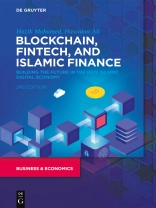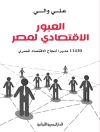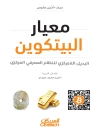Following the success of the first edition that brought attention to the digital revolution in Islamic financial services, comes this revised and updated second edition of Blockchain, Fintech and Islamic Finance. The authors reiterate the potential of digital disruption to shrink the role and relevance of today’s banks, while simultaneously creating better, faster, cheaper services that will be an essential part of everyday life. Digital transformation will also offer the ability to create new ways to better comply to Islamic values in order to rebuild trust and confidence in the current financial system.
In this new edition, they explore current concepts of decentralized finance (De Fi), distributed intelligence, stablecoins, and the integration of AI, blockchain, data analytics and Io T devices for a holistic solution to ensure technology adoption in a prudent and sustainable manner. The book discusses crucial innovation, structural and institutional developments for financial technologies including two fast-growing trends that merge and complement each other: tokenization, where all illiquid assets in the world, from private equity to real estate and luxury goods, become liquid and can be traded more efficiently, and second, the rise of a new tokenized economy where inevitably new rules and ways to enforce them will develop to fully unleash their capabilities. These complementary and oft-correlated trends will complete the decentralization of finance and will influence the way future financial services will be implemented.
This book provides insights into the shift in processes, as well as the challenges that need to be overcome for practical applications for AI and blockchain and how to approach such innovations. It also covers new technological risks that are the consequence of utilizing frontier technologies such as AI, blockchain and Io T. Industry leaders, Islamic finance professionals, along with students and academics in the fields of Islamic finance and economics will benefit immensely from this book.
O autorze
Dr Hazik Mohamed is a multi-skilled professional with substantial business management experience and varied experience in strategic problem-solving, project management and operational leadership roles. His wide consulting services include financial inclusion, sustainable development, new technology for improved socio-economic innovation. He possesses an MSc in (Conventional) Finance and a Ph.D. in Islamic Finance focusing on Behavioral Economics, using Game Theory for policy and decision-making analysis. Professionally, he is working on business growth strategies for start-ups and engaged on various consulting projects.
Hazik is the published author of Belief and Rule Compliance (Academic Press, an imprint of Elsevier, published in 2018) on behavioural economics and Blockchain, Fintech and Islamic Finance (published by De Gruyter in 2019) as well as Beyond Fintech (World Scientific in 2020) on financial technologies and digital transformation. Hazik regularly contributes thought leadership articles to industry-specific magazines and reputable academic journals in order to bridge the gap between academia and industry.
Hassnian Ali is currently a Ph D candidate at Hammad Bin Khalifa University (HBKU), Qatar. He possesses an MA in Islamic Banking and Finance and works as the Assistant Director of Research at the Institute for Research in Islamic Economics (ICRIE) at Minhaj University in Lahore, Pakistan. He is one of the pioneer researchers and authors in the area of Islamic Fintech. He has presented numerous research papers on Fintech in the context of Islamic finance at international workshops and conferences. Hassnian is an upcoming scholar who will play a crucial role in Islamic Fintech in the years ahead.












